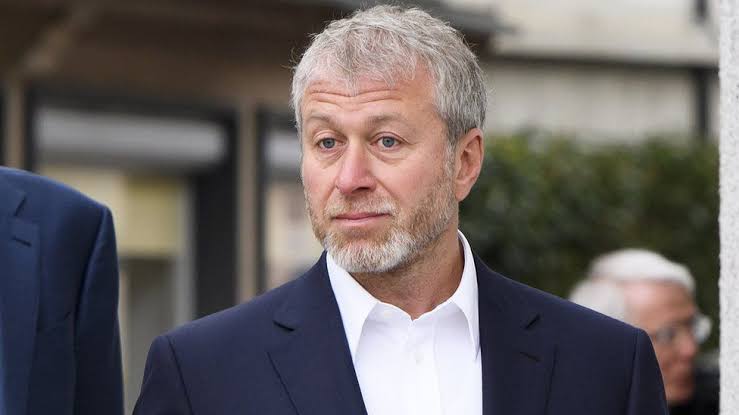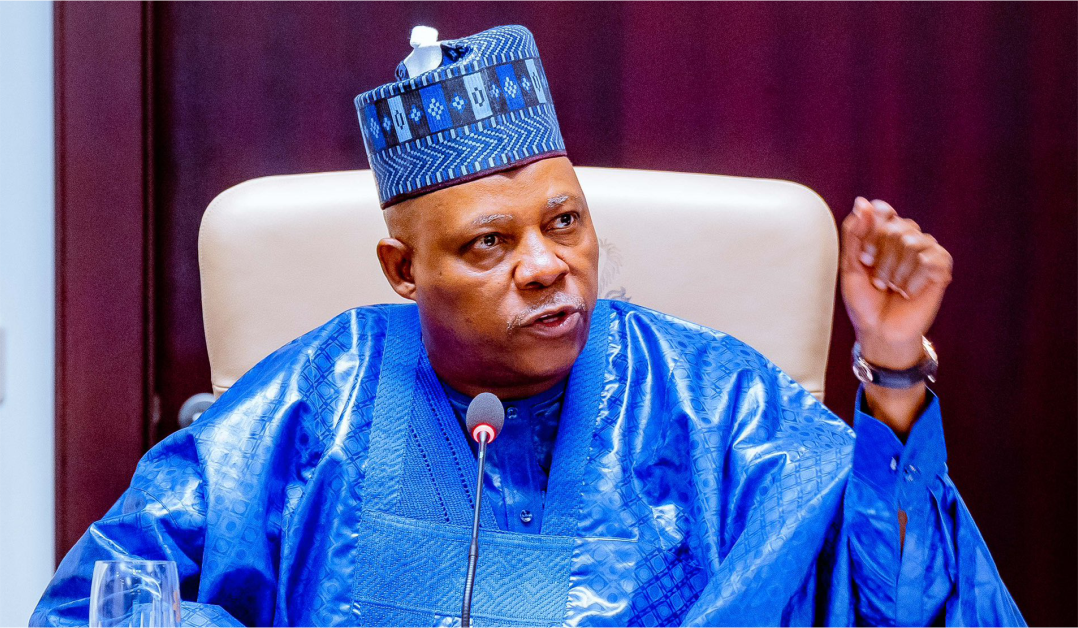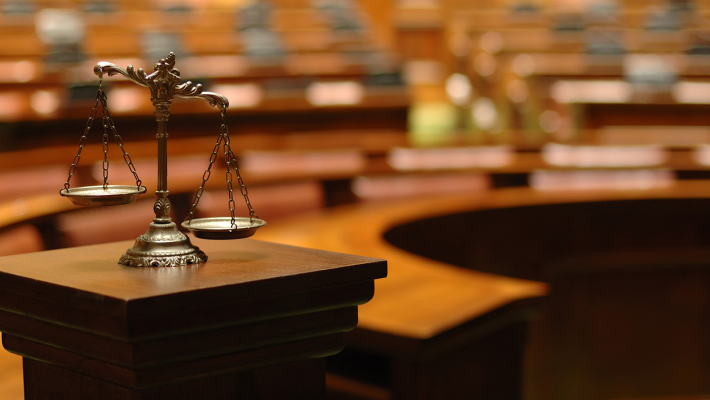ANALYSIS: Roman Abramovich’s journey from Chelsea ownership to victim of Putin’s pariah

When Roman Abramovich moved to sell Chelsea and advance net proceeds to victims of the ongoing war in Ukraine, he piqued the curiosity of many far beyond the English Channel and the Black Sea. He had shuttled both regions for the past 20 years as a jet-setting football executive, but a spectre of his true persona did not elicit such a global audience as earlier this week when his ties to President Vladimir Putin was magnified as Russia’s unprovoked invasion of a sovereign neighbour gripped citizens across the world.

Besides disclosing his readiness to part with an asset he had cherished for two decades, Mr Abramovich also said he would not be reclaiming a £1.5 billion loan he had advanced to the club. This has continued to incite chatter about whether or not he bought Chelsea to fund his oligarch lifestyle or for the glory of sportsmanship.
As Western powers tighten the noose on Mr Putin and his inner circle of oligarchs, Mr Abramovich has become one of the top names to suffer the backlash of the eccentric Russian dictator’s lethal excesses.
It can’t be absolutely said how Mr Abramovich plans to extricate himself from Mr Putin’s infamy, but here’s how he acquired his name.
15-minute deal
Nobody appeared to know who Mr Abramovich was when it was reported that the Russian billionaire had purchased Chelsea FC in 2003. He was a youthful, press-shy, oligarch from remote Chukotka area in Russia who had raked in boatloads of cash in the oil and gas sector.

At the time, Mr Abramovich said he needed to purchase a football club because he was bored and could use a new challenge. However, Chelsea weren’t always the only available option. Pini Zahavi, the Israeli super-agent, had offered a few possibilities that included Portsmouth FC and the almighty Manchester United.
Yet, Chelsea offered an alluring outlook. Firstly, the club was in London, which Mr Abramovich had made his second home amongst other wealthy Russian businesspeople. Secondly, Chelsea’s finances were also in dire straits; then-owner Ken Bates had hauled the club into the new era of English football, but by 2003, the club had much debt and was battling to pay off a $23 million interest increments.
Consequently, Mr Abramovich — as said by former Chelsea CEO Trevor Birch — made a deal for the purchase of Chelsea in less than 15 minutes.
Humble beginnings
Mr Abramovich came from humble beginnings. He was born in 1966 but became an orphan at five. It’s been mentioned he was a student of highway engineering, but there is no proof that he graduated.
By the time he finished the mandatory military service year in 1986, the world was evolving. Mikhail Gorbachev was attempting to change a broken Soviet state, projecting on the ideas of Glasnost (receptiveness) and Perestroika (economic and political renaissance).
Mr Abramovich jumped at the opportunity and ventured into a litany of businesses. Some were fruitful, many ended in losses. The one that brought him the most fortune, it appeared, was selling children’s toys, especially rubber ducks.
When the Soviet Union collapsed, ambitious and entrepreneurial men, like Mr Abramovich, saw it as an opportunity to make money. The exact details of his initial wealth are still unclear. What is known, however, is that he ventured into oil and gas during this period.
In the turbulent, post-socialist years, that industry was full of risk but offered high rewards for those that explored it. By 1993, it was widely reported that Mr Abramovich was welcomed to a gathering on a yacht in the Caribbean featuring a long list of the most prominent business people to benefit from the post-soviet period.
The “Yeltsin Oligarchs”

On this yacht, Mr Abramovich met Boris Berezovsky, an accomplished mathematical genius who had made a fortune buying and selling Soviet-made cars. The two became business associates and settled subsequently to harmonise the oil business through vertical combination, gathering various organisations to separate and refine the oil under one umbrella organisation they would control.
This was acknowledged because of the now-scandalous “Loan for Shares” programme.
In the early 1990s, when former Russian President Boris Yeltsin faced an almost impossible task of winning reelection whilst competing against Gennady Zyuganov, he arranged with Russia’s recently advanced “oligarchs.” They would guarantee his political standing and, consequently, be given first dibs on the privatisation of state resources.

Mr Yeltsin was re-elected, and accordingly, Russia’s most crucial state resources were sold for a portion of the market cost. Messrs Berezovsky and Abramovich purchased Sibneft (now of Gazprom) for $100 million, even though it is believed that its actual worth was near $3billion. It made the two men extremely rich, in a period most Russians were living in penury.

Towards the end of the 1990s, Mr Yeltsin became very sick and dealt with chronic alcoholism. He had to step down as President due to this eventually but it must be added that he had become highly unpopular following the significant economic downturn that began in 1998 when the Russian rouble crashed.
Enter Vladimir Putin, Mr Yeltsin’s favoured substitute. It was unclear how much Mr Abramovich was worth when he acquired Chelsea, but his net worth is now placed at about $12 billion by global business magazine Forbes.
Pitching with Putin

Mr Berezovsky and other “Yeltsin Oligarchs” like Mikhail Khodorkovsky — who purchased Yukos Oil and was Russia’s wealthiest man at the time — had their aspirations for power or change and didn’t consider Putin to be a worthy opponent.
Yet, recognising that he may become president, Mr Abramovich immediately fell in line with Mr Putin, who had guaranteed that he would crush the oligarchs and bring their wealth back under state control. Individually, their fortunes were confiscated by the state. Some oligarchs were imprisoned, but generally on excessive charges. In 2003, Mr Khodorkovsky was captured on tax evasion charges, misrepresentation, among others.
Mr Abramovich, it turned out, was amongst the few oligarchs that emerged from the crackdown unscathed.
Mr Putin requested outright dedication for these men to keep their fortunes, including forgoing any considerations of political power.
Mr Abramovich and others purportedly contributed large sums to projects dear to Mr Putin, such as supporting a Black Sea royal residence that has been named “Putin’s Palace” and purchasing a yacht for Putin called “Olympia”.
Mr Abramovich has continued to deny his involvement in acquisition of lush assets for Mr Putin.
When the BBC’s Panorama made the allegations again in 2016, his legal advisors excused them as “a repeat of hypothesis and gossip.” Boris Berezovsky, meanwhile, said his relationship with Messrs Putin and Abramovich strained when he pointedly told them he won’t contribute to the projects — ultimately leading him to flee to London.
Berezovsky case

A chunk of those subtleties came from what is probably the most exceptional civil litigation case in the history of Britain: the 2012 Berezovsky v Abramovich, which uncovered the lengths the two men had gone to keep their wealth.
Mr Berezovsky claimed that at the behest of Mr Putin, Mr Abramovich had contrived to take away his fortune and his ORT TV channel, which had been particularly opposing Mr Putin. Mr Abramovich fervently denied this. Eventually, Mr Berezovsky’s case fizzled, with the judge concluding that Mr Berezovsky was an unreliable witness while describing Mr Abramovich as “a truthful, and on the whole, reliable witness”.
However, not before testimonies and other activities around the case had underscored, to an extent, how business was done and fortunes kept by Russian oligarchs.
Just about a year later, Mr Berezovsky was dead. It looked very much like suicide, but the coroner’s court left an “open verdict”.
Putin’s hill
Mr Abramovich’s critical partnership with Mr Putin casts him in bad light among British parliamentarians, especially in the wake of the Kremlin’s invasion of Ukraine.
Yet, his investment and interest in Chelsea Football Club have kept him fairly popular among club faithful and other lovers of the game. His lighthearted demeanour and constant willingness to dole out cash changed the game, unnerving other top clubs who couldn’t contend.

During his time, the London-based club has been transformed into one of the biggest clubs in the world. From 2003 till date, no English club has won more titles, including the 2012 and 2021 Champions League successes. What was next was for the club to move into a new stadium, a move that would have cemented Mr Abramovich’s legacy amongst Chelsea fans.
The exact reasons behind Mr Abramovich’s venture into football cannot be told beyond his own account. Still, given his clandestine nature and the exposure that buying a Premier League club will undoubtedly get, there is room for much conjecture. Considering that Mr Abramovich has kept his fortune whilst most of the other “Yeltsin Oligarchs” have lost theirs, buying Chelsea made sense.
Football has given him an international profile and, maybe, even protection against losing everything he has. There is also no forgetting though, that his investments have changed the club into a certified, global super club, irrespective of why he bought it. Still, Mr Abramovic’s decision to timely sell Chelsea, erase the club’s £1.5 billion debt and give profits to humanitarian courses in Ukraine may come handy when it is time for him to endear himself to the public again.
We have recently deactivated our website's comment provider in favour of other channels of distribution and commentary. We encourage you to join the conversation on our stories via our Facebook, Twitter and other social media pages.
More from Peoples Gazette

Politics
Katsina youths pledge to deliver over 2 million votes to Atiku
“Katsina State is Atiku’s political base because it is his second home.”

Economy
Be patient; Nigeria’s economy to experience significant growth soon, Shettima tells citizens
Mr Shettima said Mr Tinubu chose to save the nation’s life instead of merely prolonging its imminent and predicted economic death.

Abuja
Wife divorces husband over lack of respect
The judge, Aliyu Alhassan, dissolved the marriage after the couple could not settle its differences.

States
Governor Eno donates 20 patrol vehicles to security agencies in Akwa Ibom
Mr Eno presented the Toyota Hilux Trucks fitted with state-of-the-art gadgets to the agencies on Thursday.

Economy
Canada’s Trans Mountain pipeline expansion starts operations
The company said on its website that tanker ships would be able to receive oil by mid-May.

Africa
Eritrea calls U.S. human rights report ‘slanderous ritual’
The report only accentuates the prevailing, misguided, and unwarranted U.S. policy against Eritrea.

Abuja
Abuja businessman divorces wife over lack of love after 24 years
“I have pronounced divorce to her and urge the honourable court to confirm my divorce to her and dissolve the marriage,” the businessman urged the court.








